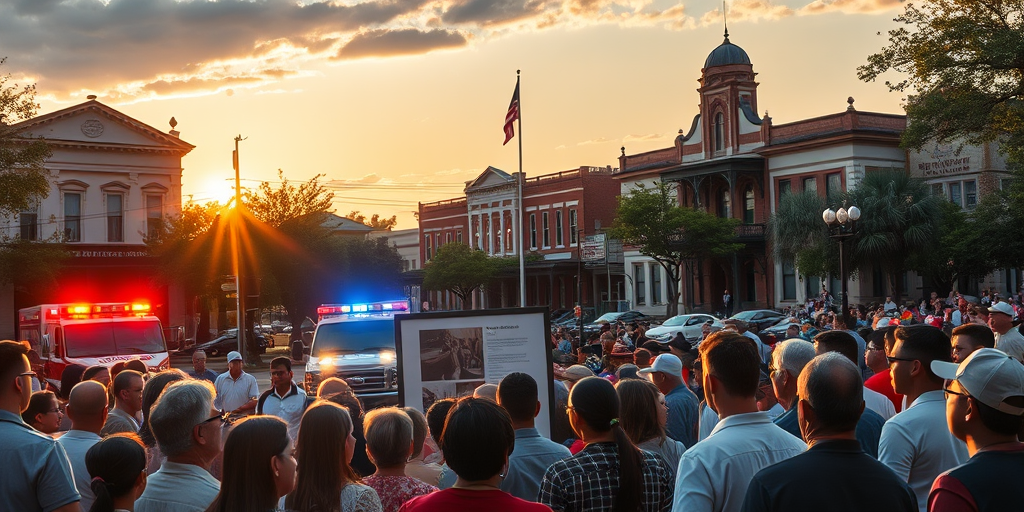Jury Seated for Civil Trial in Death of Caleb Ramirez
In a significant step towards justice, a jury has been seated for the civil trial concerning the tragic death of 8-year-old Caleb Ramirez, a case that deeply resonates across the Rio Grande Valley community. This legal proceeding hinges on a wrongful death lawsuit filed by Caleb’s grieving parents following a fatal accident involving an unlicensed teenage driver.
Background: A Community Tragedy
In 2024, young Caleb Ramirez was fatally struck by a vehicle while riding his bicycle in Pharr, igniting widespread mourning and calls for accountability. According to law enforcement, the driver was a 17-year-old without a license. While the driver faced a traffic citation, the absence of an arrest related to Caleb’s death has left many Valley residents unsettled.
Today, as the civil trial unfolds, Caleb’s parents, Sonia Hernandez and Jose Ramirez, are seeking $1 million in damages. Their lawsuit challenges not only the teen driver but also his parents and the city of Pharr, raising pivotal questions about local responsibility and public safety.
Local Impact: A Search for Answers
The trial underscores critical issues relevant to South Texas, including youth driving regulations and municipal oversight. It has prompted dialogues among Valley residents about enhancing the safety of children and pedestrians throughout the community.
Reflecting on the broader implications, local educator Laura Villanueva shared, “As a mother and teacher, I worry about kids’ safety on our streets. This trial isn’t just about one family’s loss but about reinforcing protective measures for all our children.” Such sentiments echo across the RGV, highlighting communal concerns as this trial garners attention.
Connecting Past Incidents to Present Reforms
The decision to proceed with a civil trial connects with ongoing developments and recent precedents within the Valley’s justice system. From heightened scrutiny on traffic law enforcement to public advocacy for vulnerable road users, this case may catalyze similar civil actions, encouraging victims’ families to seek reparations through legal avenues.
Civil attorney Carlos Mendoza, who has followed the case closely, notes, “We are seeing an increase in families calling for accountability. While it doesn’t ease their pain, civil actions provide a path to change and potentially prevent future tragedies.”
Future Implications for the Valley Community
While the trial’s outcome remains uncertain, the implications of a decision favorable to Caleb’s family could be significant. It might prompt stronger local legislative measures and potentially influence statewide policies regarding teen driving licenses.
Moreover, this lawsuit may instill a sense of empowerment among community members, encouraging civic participation in local governance and law-making processes designed to prevent repeat occurrences. However, this unfolding legal narrative invites balanced consideration from various stakeholders.
Balanced Perspectives and Community Response
As the trial progresses, differing perspectives emerge. Some community members question the fair distribution of liability, emphasizing the importance of rehabilitative justice, particularly for young offenders. In contrast, others focus on the necessity of rigorous oversight and discipline in cases involving minor casualties.
Michelle Garza, a Pharr resident, expressed a nuanced view: “We’re seeking accountability but also need to understand the backgrounds of those involved, especially when it comes to young drivers. That balance is crucial in ensuring long-term solutions.”
Community Resources and Next Steps
For those seeking involvement or looking for resources on pedestrian safety and legal processes, local advocacy groups are organizing workshops and informational events. Residents can contact organizations like the Valley Safety Advocates for educational materials and support in contributing to policy reform.
As this poignant chapter continues, the Rio Grande Valley stands at a crossroads of reflection and action. Through comprehensive conversations and community engagement, this civil trial may serve as a catalyst for change, fostering a safer, more accountable environment for all Valley residents.







